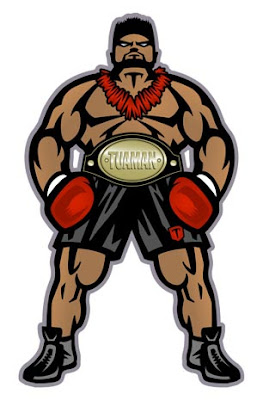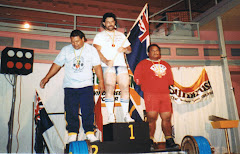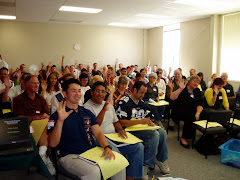
Picture: The logo at the top is of David Tua. He fights this saturday against Shane Cameron
- "Go the Tua-man!"
Colin's Collection of Comments


When being specific I recommend that you ensure that your description of what you want is not just in detail but also include sensory based wording i.e. what will you see? what will you hear? How will you know you have achieved your goal? - specifically using visual, auditory and observable wording to describe this.
ATTITUDE: Your attitude is a priority when it comes to ensuring your success when goal setting.
These questions need to be answered and you need to consider both the best and worst case scenrio's and have the attitude that will get you through any and all difficulties that you may face. Having the ability for you to access the right attitude may be beyond you as this is a specialist field. What I suggest, if you do not know how to do this, then seek out a Neuro Semantic Meta-Coach or an NS Trainer. They'll get this sorted for you - easily. Remember, attitude is everything, when it comes to getting what you want.
TIME: Your goal will need to be time bound. The goal needs to have both a start and stop dates.You'll need both short and longer sequenced time frames. This will let you know whether you are on target to achieve your goal.
 the need to align with other time frames that may be out of your control. i.e. a goal of learning to ski may not be possible until the winter months.
the need to align with other time frames that may be out of your control. i.e. a goal of learning to ski may not be possible until the winter months.ECOLOGY This is a step that is often overlooked. In all your zest to work towards your goal you miss considering what could go wrong and whether there is the possibility that achieveing your goal, could negatively impact you. Take time to think this through.
What could go wrong? e present. I'm assuming that you will apply the tips I gave you in the previous blog. I find the popular S.M.A.R.T. formula of goal setting rather tedious and present in this and my previous blog another alternative.
e present. I'm assuming that you will apply the tips I gave you in the previous blog. I find the popular S.M.A.R.T. formula of goal setting rather tedious and present in this and my previous blog another alternative. 
 Formed Outcome Model. This is a typical goal setting pattern with specific criteria that needs to be present for you to achieve your goals, or to coach others in achieving there's.
Formed Outcome Model. This is a typical goal setting pattern with specific criteria that needs to be present for you to achieve your goals, or to coach others in achieving there's.










































